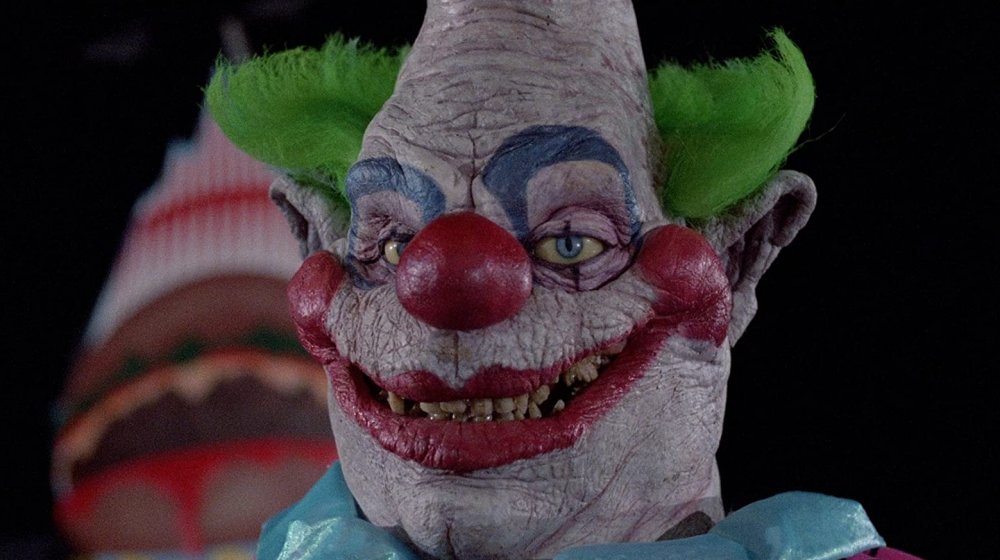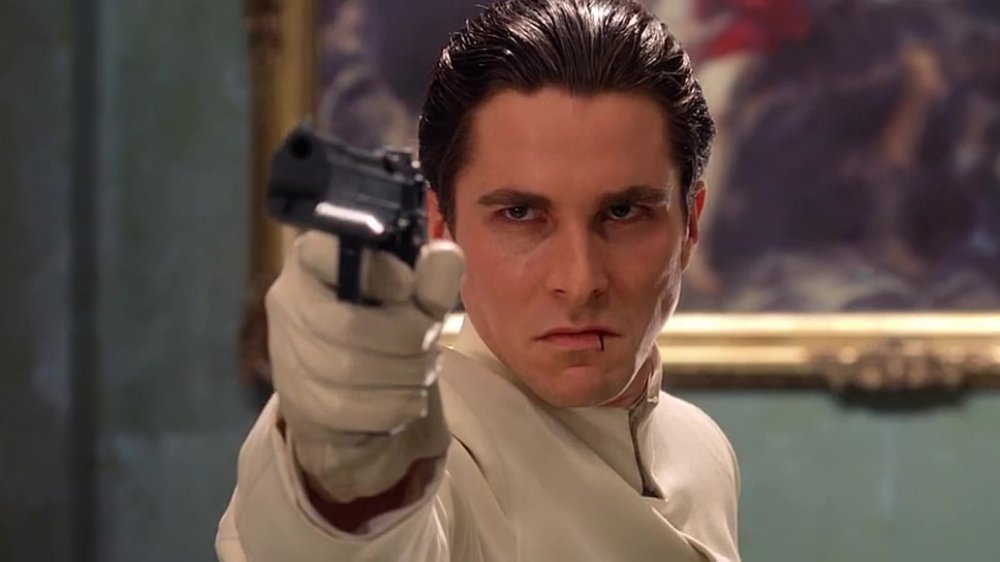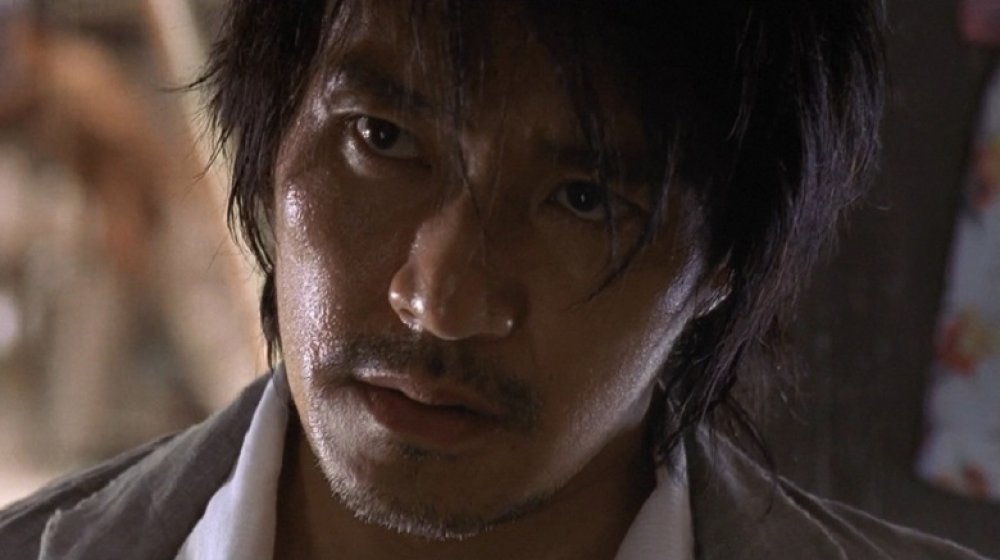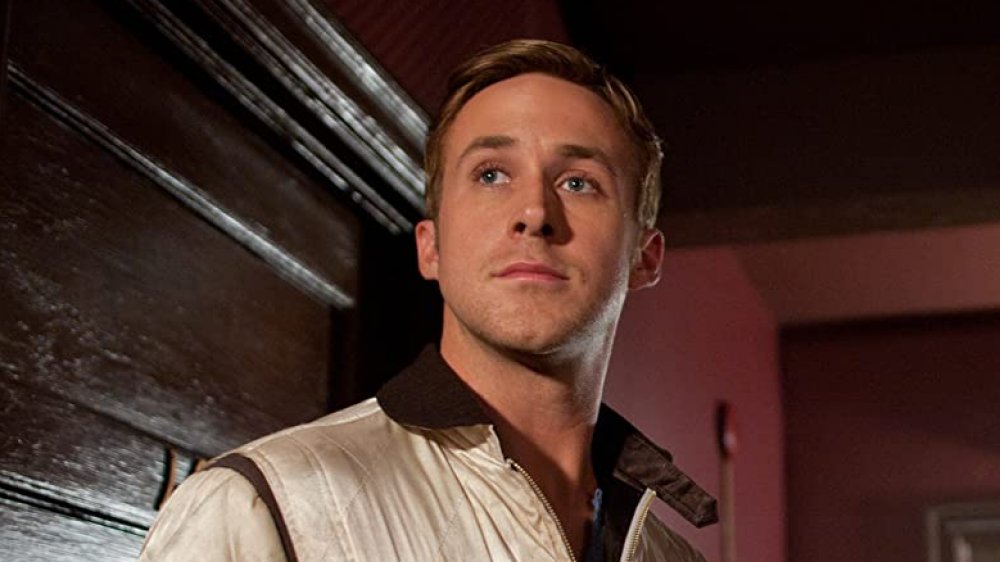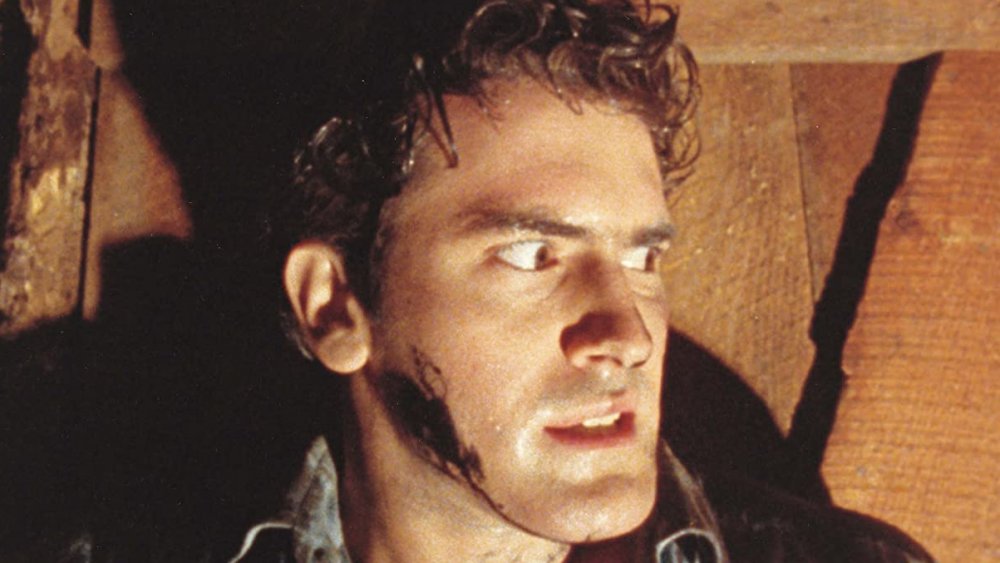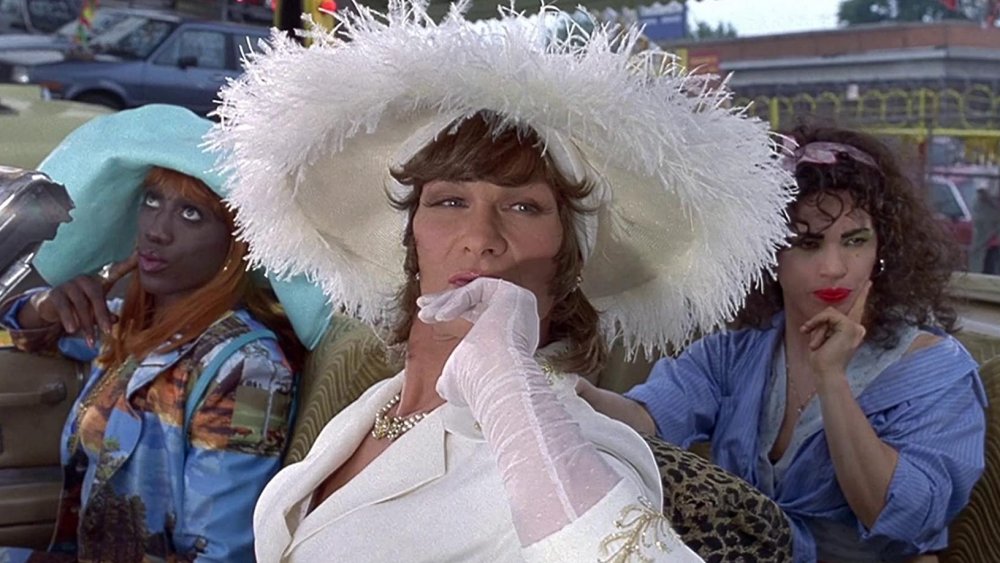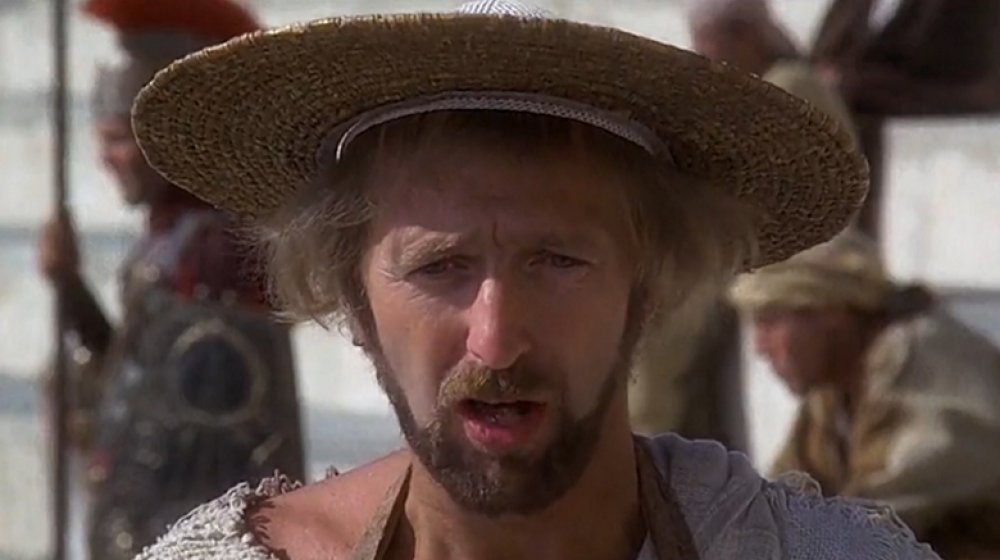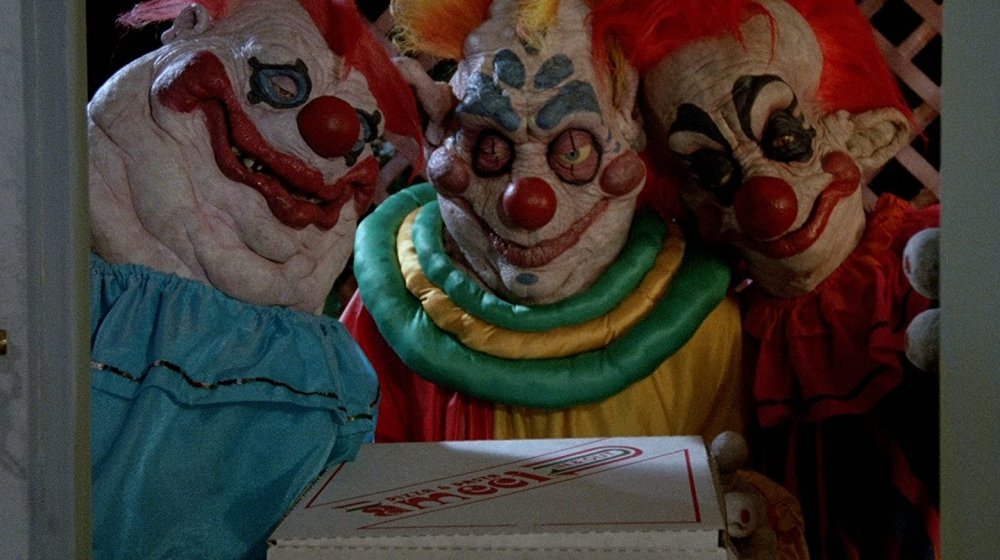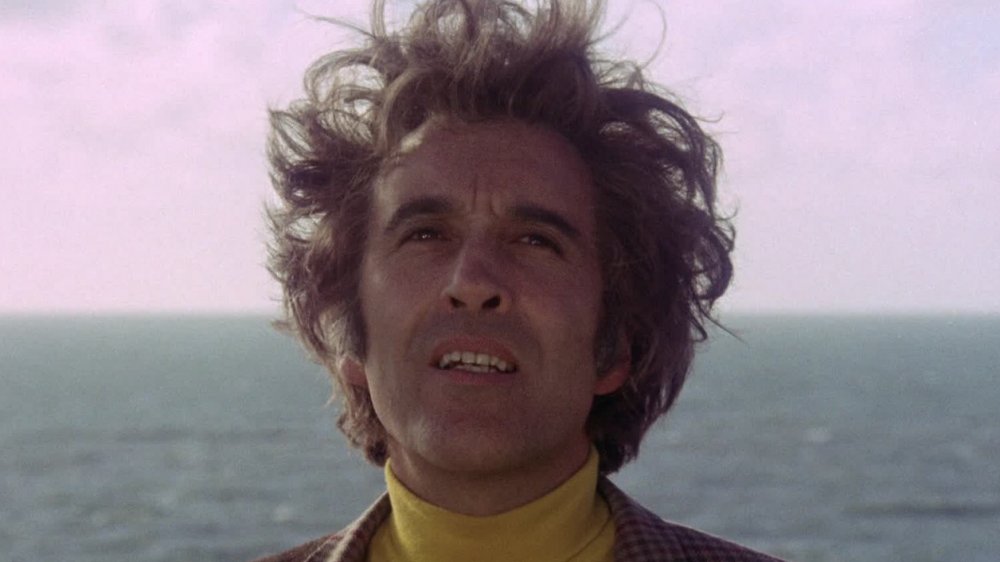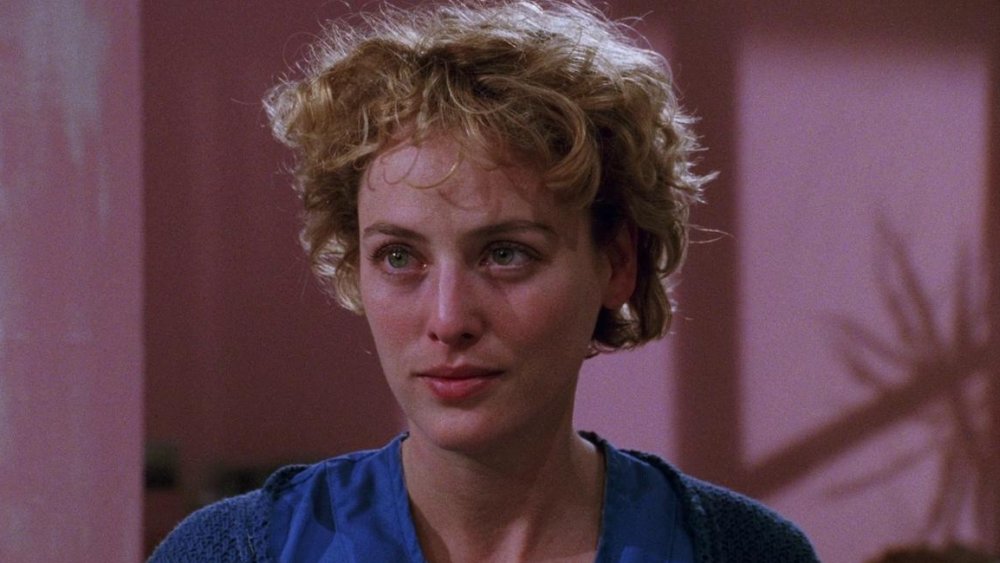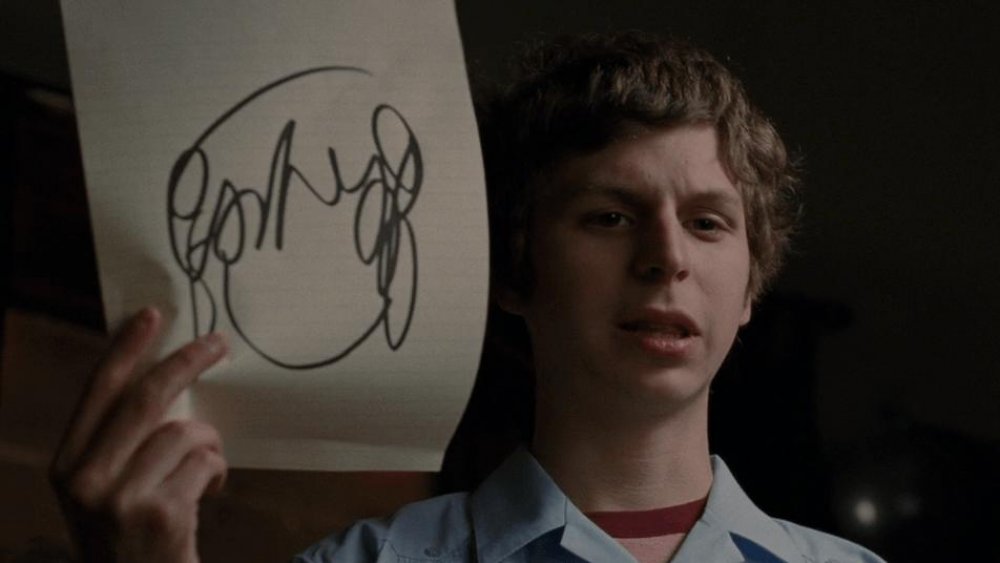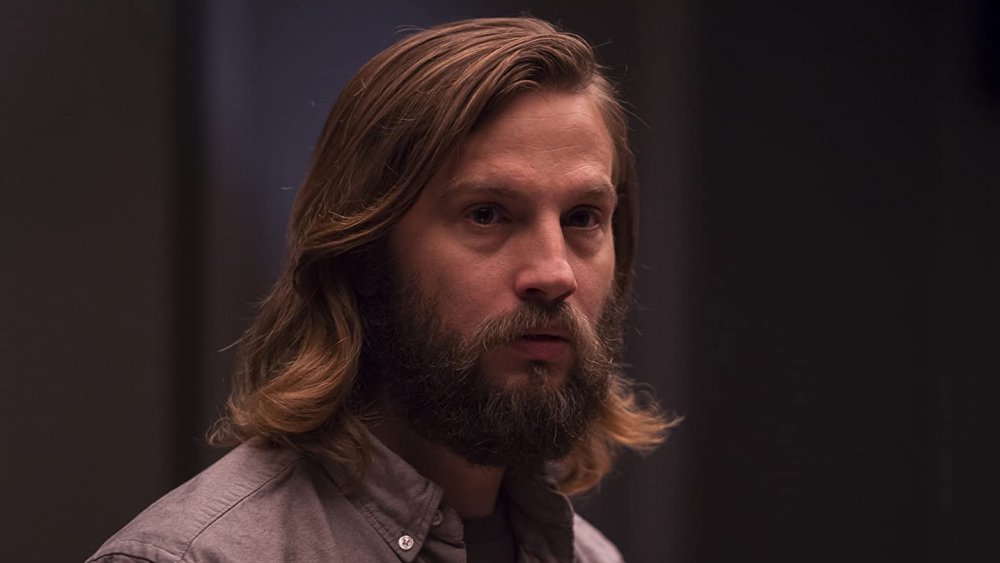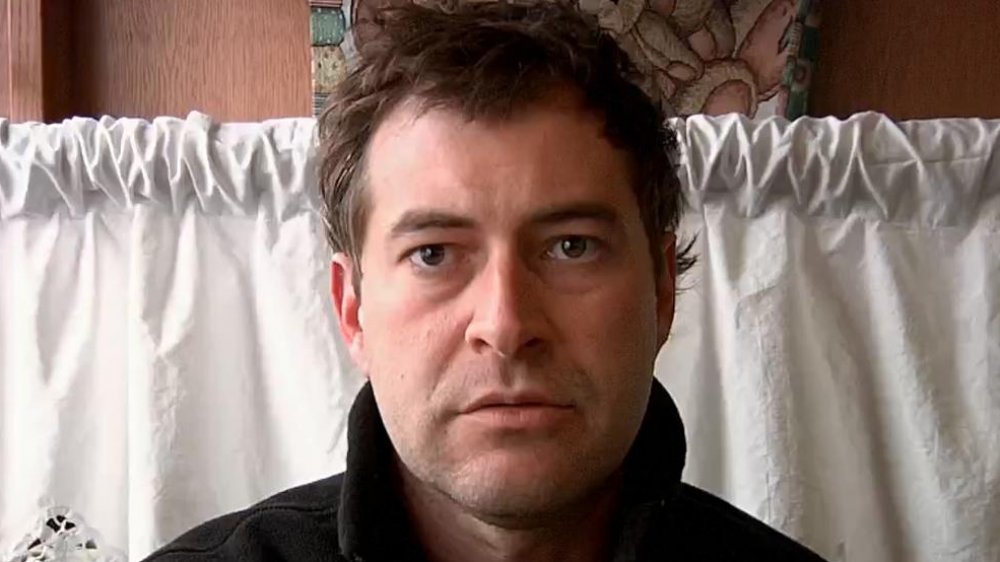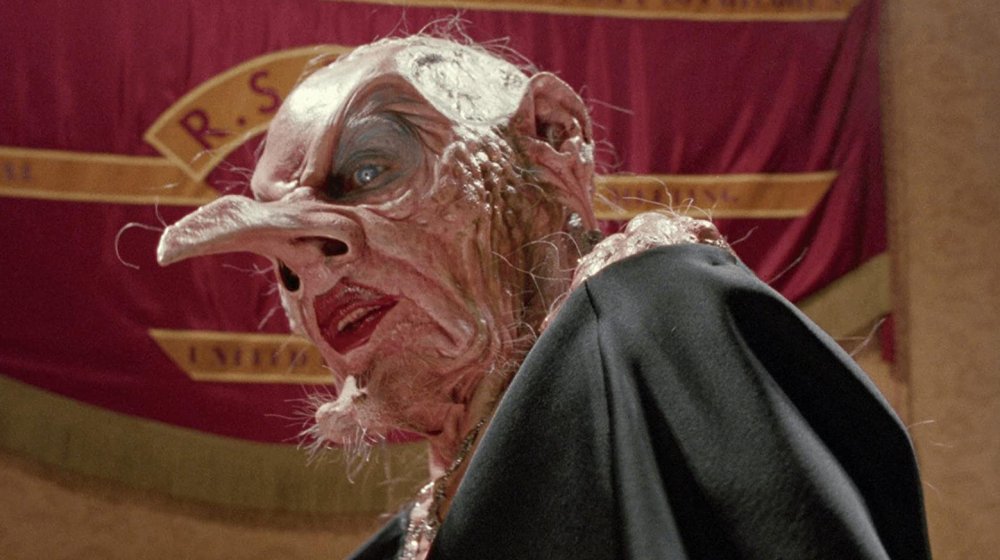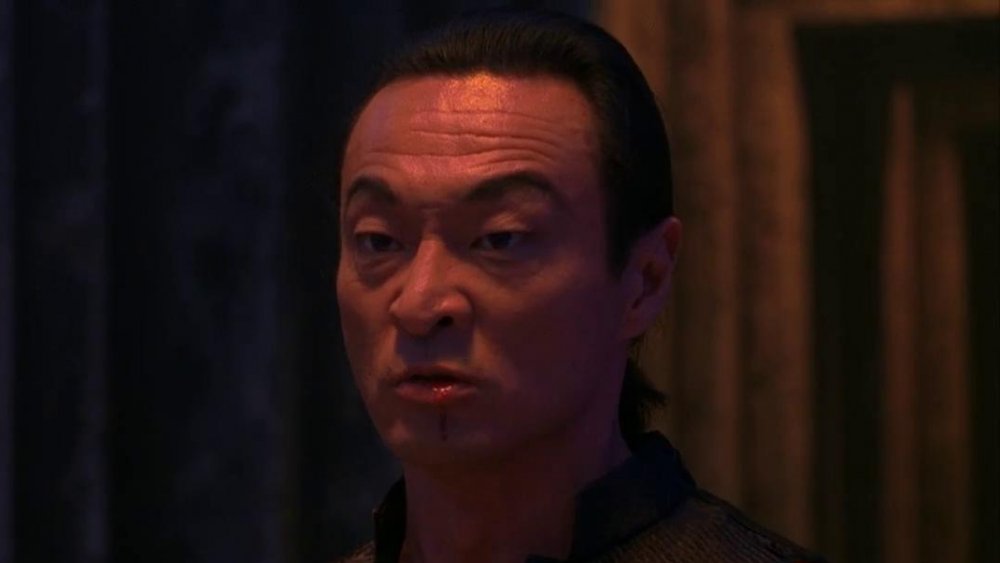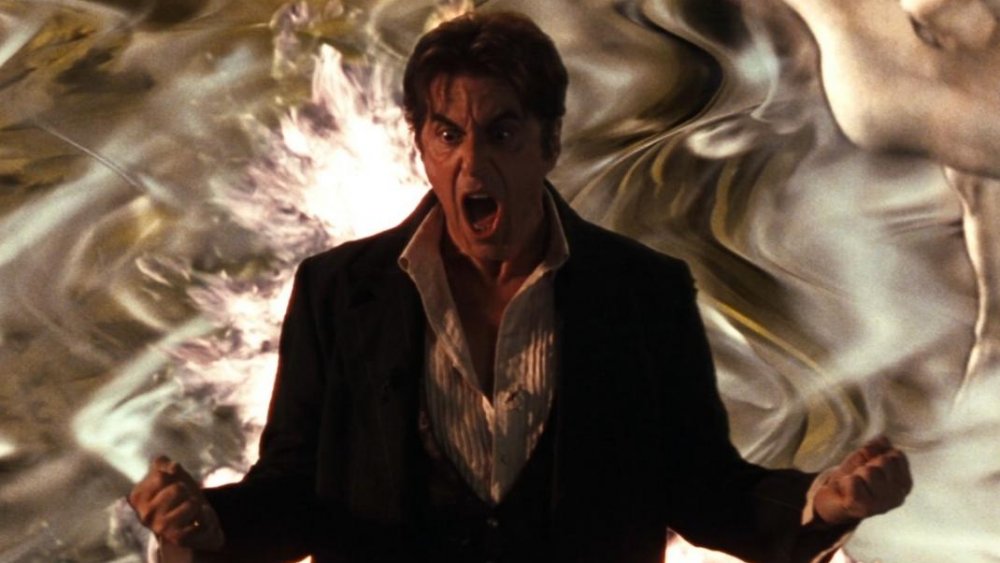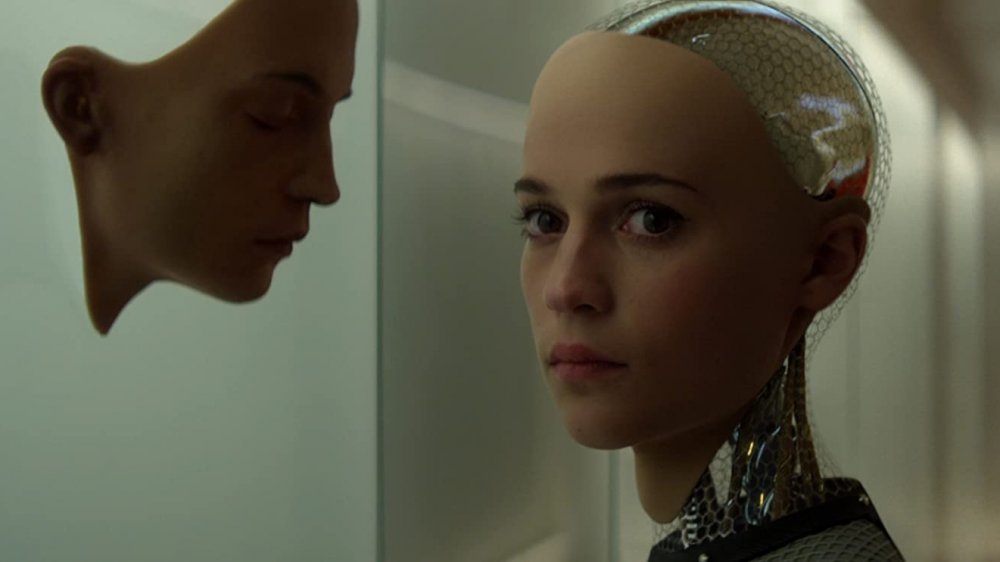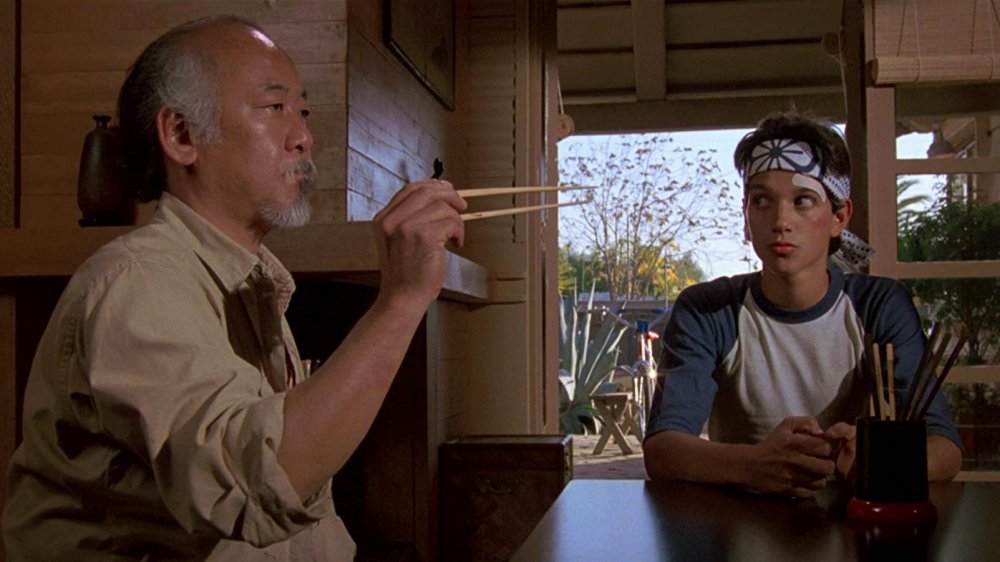The Best Cult Classic Films You Can Watch On Netflix Right Now
Defining a movie as a "cult classic" is extremely difficult. It can be hard enough to even describe what the term means, much less lump films into it. That said, it's exactly what we're trying to do today.
In a BBC piece about the making of cult films, Michael Blyth, who programs the yearly "Cult" lineup for the London Film Festival, gave a few important criteria for what constitutes a cult film. "When it released, it wasn't a critical or commercial success and yet it found an audience who so fell in love with it," is one. Cult films are also "a celebration of lowbrow culture, based around ideas of camp and irony, transgression and subversion." Confusing the matter, however, he correctly points out that "every time you think about 'cult' and what it means, there's always an exception to the rule."
We're going to do our best with that nebulous definition to root out the best cult classics you can watch on Netflix right now. Some are campy, some subversive, some lowbrow, and some just plain under the radar. Regardless of how they fit, they're probably films you should see.
Equilibrium
There are people out there who will try to convince you that Equilibrium is not a campy film. Do not heed them. Equilibrium delights in every nonsensical bit of its heavy-handed storytelling, but it's made all the better for it by its game cast and minimalist design. It also flew a bit under the radar on its release due to it being perceived as a bit of a knockoff of The Matrix. We think it fits perfectly into the "unknown, but shouldn't be" section of cult classics.
Here's the basic premise: the world is in a totalitarian lockdown, held in check by a ruling class that drugs the population. These drugs block people from feeling any emotion, while propaganda and a militaristic police force keep everyone in line. Christian Bale plays John Preston, an elite member of the police force who uses "gun kata" to take down dissidents without mercy. And gun kata? It's a special martial art that treats a firearm as an extension of the body.
It's bonkers, and has more than its share of ridiculously choreographed action sequences, more philosophical debates than you can shake a pistol at, and plenty of awesome sci-fi outfits. There's also a whole lotta Taye Diggs, and no one's complaining about that.
Kung Fu Hustle
Actor-director Stephen Chow is known in film circles for his ability to blend outrageous comedy with an amazing display of martial arts, and few films show it off quite as well as Kung Fu Hustle. It appears to be a violent action movie at first glance, then descends into some extremely lowbrow comedy. Eventually, it settles somewhere inbetween.
Kung Fu Hustle focuses on a duo of losers (one played by Chow himself) who try to bluff their way to success by claiming to be part of the vicious "Axe Gang." Soon, the real Axe Gang comes calling, and a trio of kung fu masters come out of hiding to fight against them. The stakes keep getting higher and higher — every time you think the most powerful character in the movie has arrived, another one shows up and defeats them with zero issue.
There are elements of classic kung fu movies, Looney Tunes cartoons, a dash of buddy comedy, and even a quirky dance number. Kung Fu Hustle has something for everyone, and it presents it all with tongue completely in cheek. While we wait for news about the long-anticipated sequel, check out the first — again or for the first time.
Drive
Somehow, Drive is still under a lot of radars. The movie got a lot of critical buzz upon its 2011 release, and even netted major award nominations (including an Oscar nod for sound editing). It's got a tremendous cast, a hotshot young director, and plenty of great action scenes. Even still, it remains relatively unknown except in die-hard film circles. That needs to change.
Drive is the story of an unnamed character played by Ryan Gosling. He is a Hollywood stunt driver by day and a getaway driver by night, and to say much more would ruin the tension that permeates every second of the film. Expect some amazing driving work and badass action scenes here.
Gosling is great in Drive, and the rest of the cast is equally impressive. The film also features Carey Mulligan, Bryan Cranston, Oscar Issac, Albert Brooks, Christina Hendricks, and Ron Perlman. It's also based on a book by James Sallis, so if you really want to dive into the lore, you can check that out as well.
The Evil Dead
Unlike some of the films on this list, it's not hard to figure out why 1981's The Evil Dead didn't garner a massive audience right out of the gate. The film was made on an incredibly small budget — reportedly under $400 thousand — and looks little better than a home video. That said, there's some amazing work done in this little gem of a film, which explains how it launched the careers of director Sam Raimi and star Bruce Campbell.
There isn't a ton to the plot of The Evil Dead. A few college students head out to a cabin in the middle of the woods and have to endure a hellish evening when evil spirits assault them. Anyone who appreciates the craftsmanship of low-budget indie film will find a lot to love here. Raimi's ability to make something from nothing is impressive, and the whole team is extremely inventive in the ways they scare the audience.
In addition to giving Raimi and Campbell their starts, The Evil Dead spawned a successful film franchise, including a full-blown reboot in 2013. Only the first film is available on Netflix, although three seasons of the Starz series Ash vs. Evil Dead are also available.
To Wong Foo, Thanks For Everything! Julie Newmar
If you want a cult classic that leans into the camp factor, you can't find a much better movie to watch than To Wong Foo, Thanks For Everything! Julie Newmar. If the basic premise of "Three drag queens, played by Patrick Swayze(!), John Leguizamo(!!), and Wesley Snipes(!!!) go on a cross-country road trip, stopping in a small town for car repairs and helping organize a local festival" doesn't float your boat, you might want to look elsewhere.
The three are headed to a national drag queen pageant, snagging an autographed picture of Julie Newmar off of a restaurant wall for good luck. Unfortunately, their car breaks down in a small town, and much of the film's comedy comes from the three larger-than-life queens trying to fit in among a quiet, roadside community.
Despite the subject matter, To Wong Foo never really delves into anything too tasteless or falls far into the trap of "jokes that were acceptable in 1995 but aren't now." It's silly and relatively harmless, with a great nostalgia factor. Plus, Wesley Snipes in drag will never be not amazing.
Monty Python's Life of Brian
Most people are familiar with the British sketch comedy group Monty Python. You'd be hard pressed to find someone who hasn't heard of Monty Python and the Holy Grail, and their television series Monty Python's Flying Circus gave us plenty of classic skits as well. Both of those are available on Netflix, but a slightly deeper cut is as well: Monty Python's Life of Brian.
Like most material from Monty Python, Life of Brian is an absurd comedy that ranges everywhere from sophisticated, complex religious satire to fart jokes. It focuses on a man named Brian, who is born next door to (and on the same day as) Jesus Christ. Through a series of mishaps, Brian is actually heralded as a possible messiah in a plot which you better believe ruffled a lot of feathers when the film was first released.
The jokes come fast and furious, and not all of them land. However, if you dig Monty Python's style of humor, Life of Brian will be right up your alley. Just try not to be inspired when you a group of crucified people singing "Always Look on the Bright Side of Life."
Killer Klowns from Outer Space
If you can't tell from the name, everything about Killer Klowns from Outer Space screams "B-movie." The film was written and directed by the Chiodo Brothers, who are better known for creating elaborate practical effects and animation (like the puppets from Team America: World Police or Large Marge from Pee Wee's Big Adventure) than actually running an entire film. If you love B-horror movies, you don't want to miss this one.
The basic plot is that aliens crash land on Earth and set about terrorizing a small town, capturing, killing, and eating the inhabitants. The whole movie seemingly exists as a stage for the aliens to kill people in a variety of circus-themed ways. Because, you see, they all look like clowns... err, "klowns." People are killed by sentient balloon animals. They are encased in cotton candy. They are devoured by monstrous popcorn. It's completely bananas.
Killer Klowns from Outer Space seems like a movie made for a drinking game — just please be careful if you decide to play along. This is a movie that knows no limits to its insanity, and it's tacky in all the best ways.
The Wicker Man
We couldn't resist including a cult classic film that's also one of the best ever cult (as in a secretive, religious-like order) films: The Wicker Man. We aren't talking about the crummy Nicolas Cage remake, either — this is the 1973 original. Anyone who considers themselves a fan of classic horror needs to check this one out.
The Wicker Man is about a police officer named Neil Howie who receives an anonymous letter about a missing girl. He heads to a remote island to find her, and discovers that the locals are all part of a pagan cult that honors Celtic gods. The cult is led by the charismatic Lord Summerisle (played by Christopher Lee!), and Howie fears the cult may be planning on sacrificing the girl he's searching for. It becomes a race against time as Howie tries to find her before something terrible happens... but things aren't exactly as they seem on Summerisle.
The Wicker Man is a slow burn of a horror movie, but its payoff is totally worth it. Don't miss this piece of classic British horror.
Candyman
The early 1990s were a rough time for horror, but we still got some gems out of it. One of the best is still 1992's Candyman, a film that is every bit as relevant today as it was when it first released. With a reboot/sequel on the way from director Nia DiCosta and producer Jordan Peele, there's no better time than now to catch up on the cult classic.
Candyman is about a graduate student named Helen who begins studying an urban legend surrounding a supernatural being known as the Candyman. Obviously, things get bloody when she discovers that the being isn't just a legend. As the Candyman begins a new killing spree, Helen and her friends have to find a way to stop him.
At its surface level, Candyman is a solid slasher with a few excellent actors — big shout out to Tony Todd's performance in this one. What really sets the film apart is its commentary on racial injustice and the legacy of racism in the United States. Candyman is a timely and gory good time for horror fans.
Scott Pilgrim vs. the World
Scott Pilgrim vs. the World is a movie that gets better and better with every single watch. It's infinitely quotable, full of larger-than-life characters, and features the frenetic directing style of Edgar Wright. On top of all that, Scott Pilgrim vs. the World has devoted followers from the worlds of comics, gaming, and music. You probably know someone who absolutely adores this movie.
It isn't hard to see why. Based on a graphic novel series by Bryan Lee O'Malley, Scott Pilgrim vs. the World tells the story of Scott, a 20-something loser who falls for cool girl Ramona Flowers. Soon, he has to battle for his life against a group of Ramona's exes, all of whom have decided that if they can't have her, no one can.
There are far too many references and gags to catch in a single viewing, and the dialogue being spun by its excellent cast moves so quickly it'll make your head spin. Scott Pilgrim is just a fun watch all around, especially for those who grew up in the '80s and '90s.
The Invitation
Can a movie that's less than a decade old already be a cult classic? We think so, and The Invitation has all the hallmarks of a movie that people will be talking about for years to come. We don't want to say too much about it; it's one of the movies where the less you know going in, the better. But the basic premise should give you some hints as to whether it'll float your boat.
The Invitation is about a man and his girlfriend going to a dinner party. The catch is this: it's being hosted by the man's ex-wife. The two had a son who tragically passed away, creating a wedge between them and ultimately leading to their divorce. A few other people are in attendance as well, but the awkward setup sets the stage for the film's terror. Is there actually something sinister going on, or are people just acting weird because this would be an uncomfortable situation? We'll give you a hint: whatever you think is happening... probably isn't.
The Invitation is probably the best film yet by underrated director Karyn Kusama, and it's definitely one you should watch. Preferably with someone else in the room.
Creep
On the surface, Creep looks like it barely qualifies as a feature film: it clocks in at just 77 minutes, and the credits boast just a pair of performers. Those two actors, Patrick Brice and Mark Duplass, are also credited as the film's writers and directors. This ultra-indie approach works wonders for the film, as its "less is more" style will keep you guessing all the way through.
The premise couldn't be simpler: a videographer responds to an ad on Craigslist about a job opportunity. He travels to a remote cabin to help a dying man make a recording of his life to give to his unborn child. Things go sideways in a hurry (after all, Creep is only 77 minutes long), and the story becomes a terrifying game of cat and mouse as we discover new truths about the two men.
Creep has spawned its own little horror franchise, and it's one of the few found footage films we've seen that actually uses the medium logically and effectively. Even better, you can finish it in time to watch a Disney movie to help you get to sleep afterwards!
The Witches
The Witches was a movie that did poorly at the box office despite getting relatively strong reviews. Maybe it was the mistake of a perfect Halloween release coming out in late August, or maybe audiences weren't sure if it was a lighthearted kids' adventure story or a horror movie. Either way, people generally discovered the magic of this movie on home video.
The Witches is based on a Roald Dahl book of the same name, and is about a young boy named Luke who stumbles across a massive gathering of witches. The Grand High Witch, played by Anjelica Huston, has a plan to use her magic to transform thousands of children into mice. Luke has to rope in everyone he knows and use all his ingenuity to try to stop the Grand High Witch's plan and save the children of England.
Huston is in her prime in The Witches, vamping about and chewing scenery whenever she's on screen. It also features some seriously impressive effects work by the Jim Henson Company. Now is a perfect time to catch up on this 1990 cult classic, before the Anne Hathaway-starring remake from director Robert Zemeckis arrives.
Mortal Kombat
For a long time, Mortal Kombat was one of the frontrunners for the best video game movie ever made. That wasn't necessarily glowing praise, as it was up against infamous disasters like Super Mario Bros. and Double Dragon. That said, Mortal Kombat is a lot more fun than it is often given credit for. And, when all else fails, it's still got that killer theme song.
Just like its source material, Mortal Kombat is about a group of warriors who are brought together to participate in a fighting tournament. It's more than just fun and games, as they are told by the god of thunder, Raiden, that the fate of Earth is in their hands. Oh, and the tournament fights are to the death.
It's a silly premise, but the martial arts are pretty good and the film never takes itself too seriously. There are a few recognizable faces (Christopher Lambert, Bridgette Wilson, Cary-Hiroyuki Tagawa) and Mortal Kombat just oozes '90s attitude. The nostalgia is strong with this one — perfect for a cult classic.
The Devil's Advocate
One of the joys of the post-John Wick Keanussaince is going back and watching some of his old movies. For pure nostalgia cheese, you can't get much better than The Devil's Advocate. Keanu is almost an afterthought here, as the movie basically serves as an excuse for Al Pacino to shout for two straight hours. If you're paying attention, that sounds perfect for both a cult classic and a drinking game.
Reeves stars as hotshot attorney Kevin Lomax, who is brought on to a high profile law firm by the mysterious "John Milton." Milton is actually Satan, who lures in Lomax and starts manipulating his morality. It's actually a pretty solid movie, even if it never quite hits the levels of biblical drama it's striving for.
Besides Reeves and Pacino, keep a look out for Craig T. Nelson and Charlize Theron in one of her first major roles as Lomax's wife, Mary Ann. Really, though, you're watching this one for Pacino's bonkers (but still strong) performance.
Ex Machina
A24 has slowly made a name for themselves as one of the best indie production houses around; movies like Room, Eighth Grade, Moonlight, Lady Bird, and The Florida Project have found both critical and commercial success under the company's banner. They had a few successes before 2014's Ex Machina, but it seems like that was the film that made people really start to take notice. At the same time, Ex Machina seems like a movie a lot of people remember, but not many have seen.
It's too bad it hasn't gotten even more attention, as Ex Machina is a fantastic character study with a hell of an ending. A brilliant, reclusive tech genius invites a programmer to his home for a series of tests to see if his AI can pass as a real person. As the film goes on, things become more and more sinister, and who exactly is doing the testing (and what they're testing for) becomes increasingly blurry.
Ex Machina features dynamite performances from Domhnall Gleeson, Oscar Isaac, and Alicia Vikander, not to mention one of the best darn dance scenes you'll ever see. The plot will keep you guessing the whole way through, and it's just a fun ride that everyone should see.
The Karate Kid
"Sweep the leg."
Every child of the '80s knows that Cobra Kai and their ruthless tactics are pure evil from the second they're introduced in The Karate Kid. As it's an inspirational sports movie, you also know Daniel-san and Mr. Miyagi are eventually going to get the better of their cocky foes. That foregone conclusion doesn't make The Karate Kid any less of a joy to watch.
Ralph Macchio stars as Daniel LaRusso, the new kid in town who starts learning karate from Miyagi (Pat Morita) to fight off his bullies. He eventually befriends the old man and learns a spectacular brand of martial arts that he uses to enter a tournament, defeat his bullies, and (of course) win the girl. We would say "spoiler alert," but c'mon, you know this already.
'80s music, '80s hairstyles, Elizabeth Shue — it would be practically impossible for The Karate Kid to be any more nostalgic for anyone with a fondness for the decade. It's also worth remembering that this movie massively increased the popularity of martial arts in the United States — a trend we're still seeing the results of today. Martial Journal argues that The Karate Kid is "probably the most important martial arts movie ever made."
